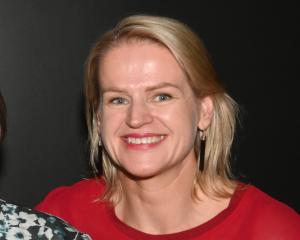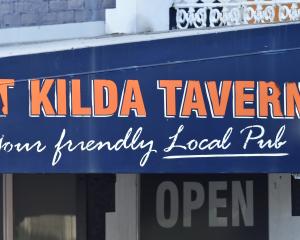Based in Queenstown, Mr Yeo (40) was responsible for bringing zip-lining to New Zealand.
He established Ziptrek Ecotours in the resort five years ago and has gone on to become an advocate of sustainability in tourism.
Mr Yeo said he had had ''a bit of a mix of everything'' in his life.
''It has ... been an exciting journey really,'' he said.
From a Chinese-Malaysian background, he grew up in Australia and studied architecture at Deakin University in Victoria.
He called it a Renaissance education as it included so many things: science, arts, culture, technology, anthropology and ''everything else in between''.
Ziptrek Ecotours was founded in 2001 when lifelong friends and entrepreneurs Charles Steele and David Udow created an adventure ecotourism business.
Zip-lining takes participants on a forest journey incorporating a series of observation platforms and flying foxes, which operate on cables running between treetop platforms.
Outfitted with a climbing harness and attached to the cable with a pulley, participants step off each aerial launch platform to soar down the cable. Between flying foxes, guides offered an interpretive adventure with a strong ecological focus, Mr Yeo said.
Mr Yeo described his time in Whistler as ''a whole lot of fun'' and the best job he had ever had.
He was impressed with how much fun, interesting and different from other outdoor experiences it was, while also incorporating ecological values.
It got him thinking about how to introduce the experience to a wider group of people and he returned to Australasia to seek out opportunities and research possible sites.
He spent four years overcoming challenges and investigating possibilities to develop the concept in New Zealand, launching the country's first zip line tour business in 2009.
Since he first met Mr Steele and Mr Udow, much had happened in the zip line world, including ''hundreds'' of operators having set up in North America.
He attributed the growth to it being not only a very accessible tourism activity but also ''super exciting'' and interesting.
''Fun is the catalyst for meaningful outdoor education. The sustainability message does not take away the fun element; it's neatly wrapped up in the whole experience,'' he said.
Enjoyment of the outdoors was waning worldwide, he said.
Despite the business having grown significantly, there was still ''huge potential'' for further development. Ziptrek Ecotours had 37 staff employed this summer.
''Hopefully, people in Queenstown, and I think they do, can appreciate we're telling the sustainability story about this place,'' he said.
Among various awards it has received, Ziptrek Ecotours was named best adventure tourism business at the 2013 Outdoor Awards in Rotorua, part of the World Outdoors Summit.
While Ziptrek Ecotours was a big part of his life, he continued his mission to discover ways to combine tourism and sustainability, Mr Yeo said.
Projects included being the licensee and curator for TEDx Queenstown 2015 and being part of First Hand Productions, a team that created online videos to help people understand the intricacies of culture and place in New Zealand for Chinese visitors.
TEDx was created in the spirit of TED, a non-profit organisation devoted to ''ideas worth spreading'' that started as a four-day conference in California 30 years ago.
The third TEDx Queenstown event would be held on April 19 next year at the Queenstown Memorial Centre, and was expected to attract about 300 people, he said.
About 10 speakers, both international and from New Zealand, would speak on a theme to be announced next month.
He was part of a 25-person team organising the event and the people he was working with were among the most driven and innovative he had met, Mr Yeo said.
It was estimated about 4000 hours of voluntary work would go into the event.
''This is a local event going to the world and that's what I love about TEDx events - we get to express what we can do in this town, in this place, to the world,'' he said.
The development of ideas, jobs, entrepreneurship and ''deeper thinking'' was very important for Queenstown, he said.
There was huge potential to have entrepreneurs come for working holidays.
Even if it was just for a week they would contribute both economically and to the culture of the resort, he said.
Also, Queenstown was not ready for the burgeoning Chinese visitor trade, or for cyclists, he said.
There was a lack of facilities for mountain biking, trail biking and cycling tours and Queenstown needed to have ''100%'' more bike racks, bike-friendly roads and locations, and safety management in place.
He believed there was potentially more economic value from cycling than skiing in the future.
For him, Queenstown was an exciting place with global appeal ''because people love to be here''.
''This is heaven on Earth. I love the mountains; I moved here for the outdoors. I don't do much because I work too hard, but I plan to,'' he said.
He surrounded himself with ''cool and interesting'' people, which made his life fun.
''It's a cool life I have ... I think I'd like to get more sleep.''












